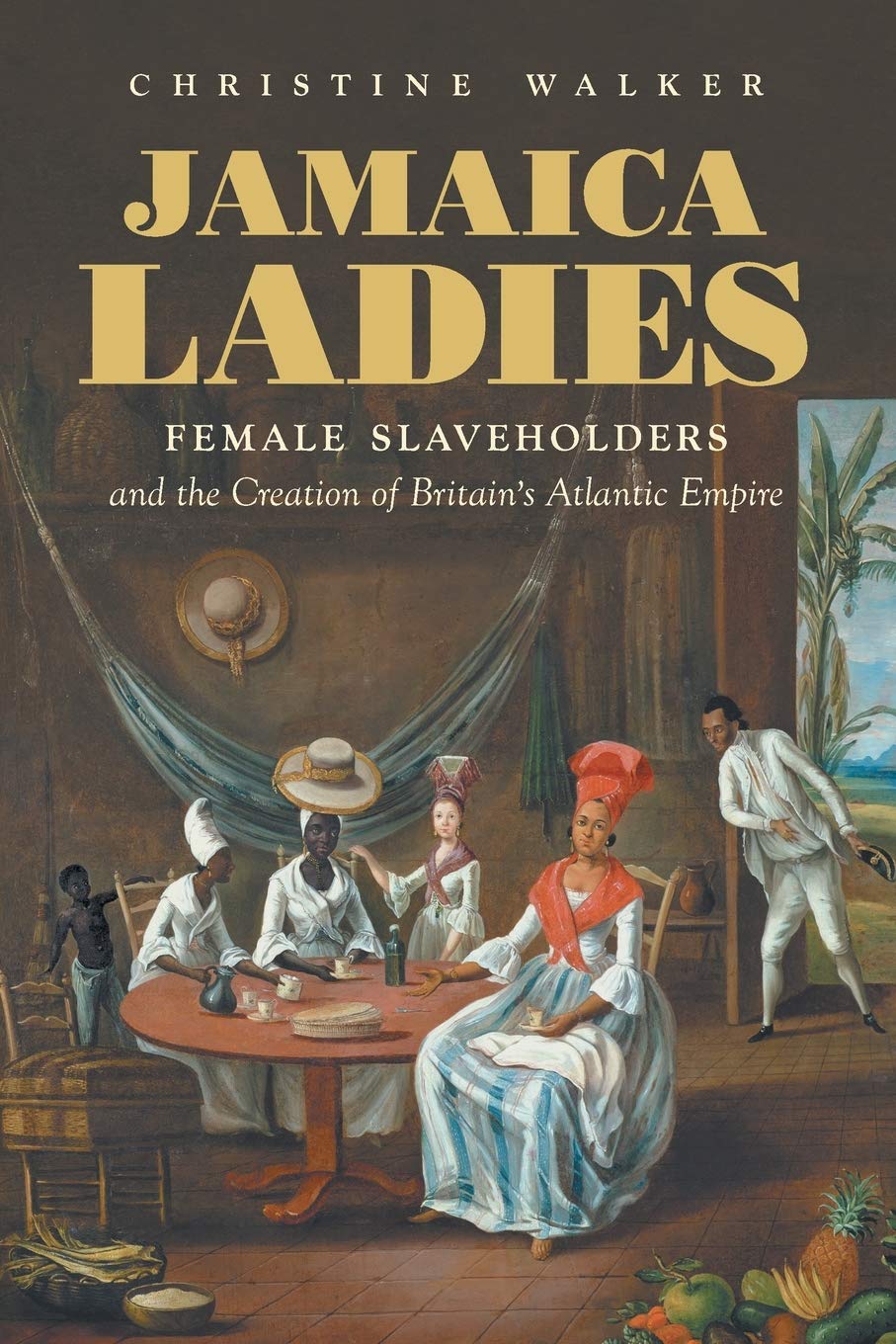
Jamaica Ladies: Female Slaveholders and the Creation of Britain's Atlantic Empire (Published by the Omohundro Institute of Early American History and ... and the University of North Carolina Press)
FREE Shipping
Jamaica Ladies: Female Slaveholders and the Creation of Britain's Atlantic Empire (Published by the Omohundro Institute of Early American History and ... and the University of North Carolina Press)
- Brand: Unbranded

Jamaica Ladies: Female Slaveholders and the Creation of Britain's Atlantic Empire (Published by the Omohundro Institute of Early American History and ... and the University of North Carolina Press)
- Brand: Unbranded
| RRP: | |
| Price: |
Description
She then joined Manchester City where the now 26-year-old continues to show her class, scoring 31 goals in 30 games last season and being named the club’s player of the year.
Walker, moving out of the tempting light of the robust archive of the nineteenth century, makes the persuasive argument that ‘free’ women in Jamaica were both subjected by patriarchy and co-creators with men of the notoriously violent plantation system of Jamaica from the mid-seventeenth century. Rather than strictly following metropolitan dictates, Jamaican colonists modified British inheritance laws to suit their local needs, often seeking to protect women’s property claims. In chapter 4, Walker shows how women gained wealth through the deaths of and subsequent bequests by male relatives. Christine Walker’s Jamaica Ladies begins with the tale of Elizabeth Keyhorne writing her will in the burgeoning port of Kingston, in 1713.Jamaica qualified for the FIFA Women's World Cup for the first time in 2019, but the team was eliminated after losing all its matches in the group stage. Please also list any non-financial associations or interests (personal, professional, political, institutional, religious or other) that a reasonable reader would want to know about in relation to the submitted work. The team's first supplier was Italian manufacturer Lanzera in 1995 before it merged with Kappa a year later. Much of this work has been on African and creole women, a large constituency given greater context by Walker’s examination of free and freed women in Jamaica who became slave-owners.
During that tournament, Jamaica registered a 1-0 win over the host nation and also beat Haiti 4-0 and Costa Rica 1-0 on their way to a third-place finish. She has lost siblings to violence and accidents but used those tragedies to fuel her passion for football. Winner of the William Nelson Cromwell Foundation Book Prize by the American Society for Legal History, the Best Book Award by the Society for the Study of Early Modern Women and Gender, and a finalist for the Harriet Tubman Prize, granted by the Lapidus Center for the Historical Analysis of Transatlantic Slavery, Jamaica Ladies reveals women’s instrumental roles in creating the wealthiest and the largest slaveholding colony in British America.While it seems a daunting task for Jamaica to get out of Group F and into the last 16, they are expected to prove more competitive than they did in 2019 and the collective goal is to at least take points off one of France or Brazil. By 1690, Walker argues, the loosely regulated and profit-orientated nature of Jamaica offered new economic opportunities for free and freed women, opportunities that cemented their “eager adoption” of slavery and helped to create a lucrative and exploitive, but unstable, society (p.
Women like Keyhorne and Rose prospered in Jamaica during the period between 1670 and 1760, the dates that encompass Walker’s study, and they complicate common images of British Caribbean colonies as tropical sugar factories dominated by White men.
It is a show for people who love history and for those who want to know more about the historical people and events that have impacted and shaped our present-day world.
However, as Christine Walker illustrates in her new book, “Atlantic slavery was never the sole concern of white men acting in isolation” (p. The Guardian’s first female Footballer of the Year in 2018, the first player from the Caribbean to win the Concacaf Player of the Year Award in 2022, and Jamaica’s all-time leading scorer with 56 goals, Khadija “Bunny” Shaw’s career is one of bumps, bruises and of course, tremendous success.Jamaica Ladies makes an impressive and innovative contribution to our understanding of the gendering of colonial society.
- Fruugo ID: 258392218-563234582
- EAN: 764486781913
-
Sold by: Fruugo
